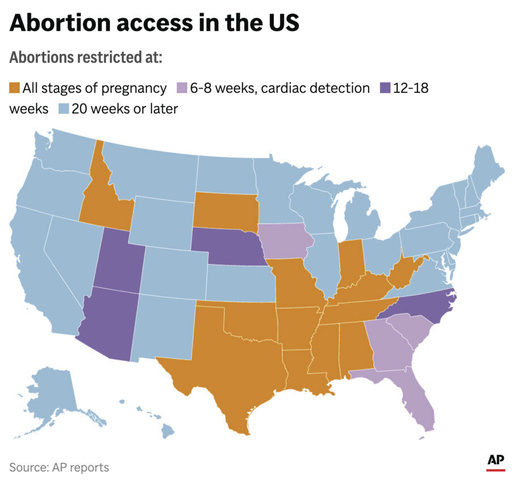
In the wake of Donald Trump’s election to a second presidential term, there has been a noticeable surge in requests for long-term birth control and sterilization procedures across the country. Dr. Clayton Alfonso, an OB-GYN at Duke University, reported immediate communications from patients expressing their intention to replace their intrauterine devices (IUDs) and inquiries about tubal ligations, with many citing the election as the motivation behind their decisions.
Medical professionals have observed a nationwide spike in demand for various contraceptives, as well as for emergency contraceptive pills and abortion medications. For instance, one company experienced a staggering 966% increase in sales of emergency contraception in the 60 hours following the election compared to the prior week. “I witnessed a similar trend after Trump’s win in 2016 and following the overturning of Roe v. Wade in 2022,” noted Dr. Alfonso. “However, the current level of fear expressed by patients is more pronounced this time.”
While anti-abortion advocates are pressuring the incoming administration to implement more restrictions on abortion medications, the future of contraceptive access remains uncertain. Trump previously hinted at possible regulation of contraception during an interview, but he later asserted on his social media platform that he has never supported restricting such access.
Many patients are eager to replace their functioning IUDs in anticipation of the upcoming political changes. Concerns particularly revolve around the IUDs, which some anti-abortion proponents argue may prevent implantation of a fertilized egg, despite general medical consensus that they mainly prevent fertilization. One woman shared her fears with Dr. Alfonso regarding forced pregnancy and the potential loss of access to contraceptives, driving her decision to opt for a tubal ligation.
Furthermore, Dr. Grace Ferguson, also an OB-GYN, indicated that her patients are increasingly opting for IUD insertions or stockpiling emergency contraception as a direct response to the shift in administration. One patient, Mara Zupko, anxious about the looming political climate, is planning to stock up on prescription emergency contraception due to concerns about weight limits impacting her ability to use over-the-counter options. She and her husband have reevaluated their desire for children in light of recent societal developments, deciding against parenthood given her health risks and the current environment.
Online platforms offering reproductive health options are witnessing a rise in demand, with companies providing emergency contraception and abortion pills seeing increases in orders. Aid Access, a supplier of abortion pills, reported about 48,400 requests for advance provision pills in the U.S. from September 2021 to April 2023, with a notable spike following the early news of Roe v. Wade’s potential overturn.
Both mifepristone and misoprostol, medications used in medical abortions, have significant shelf lives—approximately five years and two years, respectively. A telehealth service named Wisp observed a 600% jump in orders for abortion pills the day after Election Day, while requests for emergency contraception and birth control surged by 460% shortly thereafter. Winx Health, another company focusing on Generation Z clientele, experienced a remarkable 966% increase in sales of its emergency contraception product, Restart, immediately following the election.
Despite the legal status of morning-after pills in all states, confusion remains regarding the differences between emergency contraception and abortion pills. Data from a recent poll revealed that while most respondents knew the two were distinct, only a fraction understood that emergency contraceptive pills do not terminate a pregnancy. Experts like Dr. Alfonso suggest that this misunderstanding, coupled with the significant anxiety surrounding reproductive rights, is driving the current frenzy for long-term contraceptive solutions.
As for the future, Dr. Alfonso speculates that the increased demand for contraception and abortion pills may stabilize as it did after previous political shifts. He cautioned that if the new administration does not prioritize healthcare issues, the impetus for such actions may fade from public focus until it gains media traction once again.
